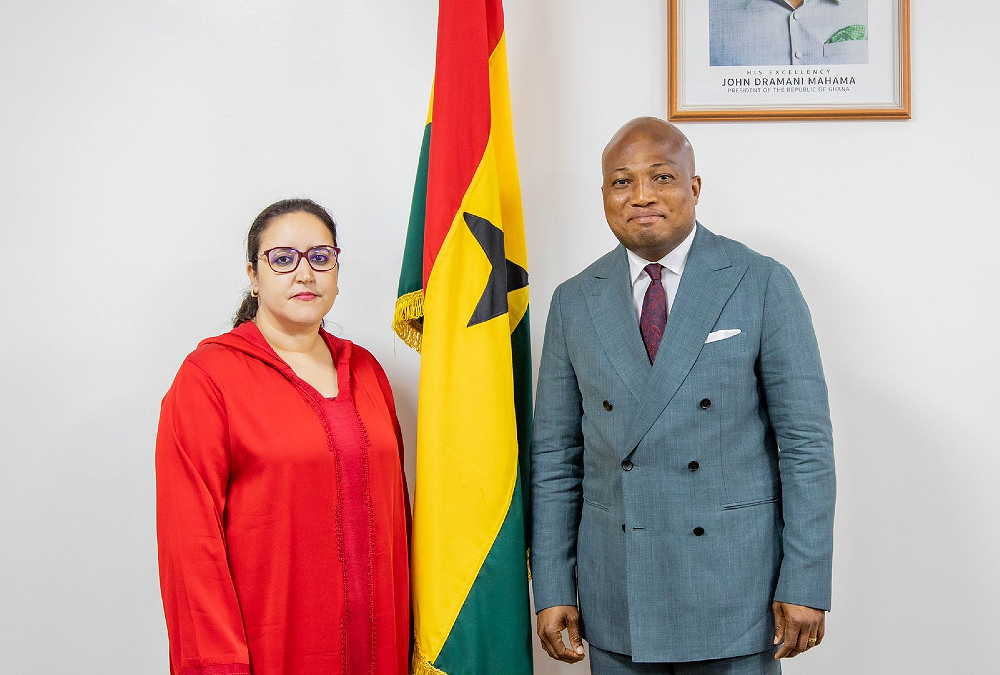Owusu on Africa
Ghana and Morocco to Implement a Comprehensive Visa Waiver Agreement


By Fidel Amakye Owusu
In a significant step toward continental integration, Ghana and Morocco have agreed to initiate a broad visa waiver for all categories of travelers. This move reflects Morocco’s commitment to strengthening its ties within Africa, particularly following its return to the African Union (AU) after a 33-year absence.
Morocco’s Exit and Return to the AU
Morocco was a founding member of the Organization of African Unity (OAU), the predecessor of the AU. However, in 1984, it became the first country to leave the bloc after the OAU recognized the Polisario Front as the legitimate representative of the Sahrawi Arab Democratic Republic (SADR), a territory Morocco has long claimed.
For over three decades, Morocco remained outside the AU, meaning its policies and protocols did not apply to the country. However, it maintained strong diplomatic and economic ties with several African nations.
In 2017, Morocco officially rejoined the AU, marking a strategic shift in its foreign policy.
Why Morocco Came Back
Upon Morocco’s return, King Mohammed VI emphasized that “when a body is sick, it is treated more effectively from the inside than from the outside.” This statement underscored the realization that leaving the AU did not serve Morocco’s interests.
Instead, the country saw greater benefits in engaging with the continent from within.
Several factors influenced this decision:
- Economic Opportunity – Morocco recognized Africa’s vast economic potential and could not afford to remain on the sidelines while other global and regional players seized opportunities. The establishment of the African Continental Free Trade Area (AfCFTA) further cemented the need for closer integration. As one of the top seven economies in Africa, Morocco was well-positioned to benefit from this agreement.
- Diplomatic Influence – With 54 member states, the AU holds significant diplomatic weight on the global stage. Countries seeking support in international forums, including Russia and Ukraine, have actively courted African nations. For Morocco, rejoining the AU meant regaining influence in these critical diplomatic networks.
- Strategic Alliances – In recent years, Morocco has sought stronger alliances across Africa, including within West Africa’s ECOWAS bloc. While its 2018 application to join ECOWAS has faced hurdles, Morocco’s push for integration continues.
Ghana and Morocco’s Strengthening Ties
Ghana’s stance on the Western Sahara issue has also evolved. In the final days of his presidency, Ghana’s former leader cut diplomatic ties with the SADR – a move that was not reversed by the current administration.
This aligns with a broader trend of countries reassessing their positions on the SADR.
Against this backdrop, Ghana and Morocco’s agreement to waive visa requirements represents more than just a travel facilitation measure. It is a statement of Morocco’s intent to play a more active role in African affairs.
With migration challenges remaining a major issue across the continent, Morocco views such agreements as a demonstration of its commitment to African unity and cooperation.
While some in Europe debate leaving political and economic unions – following the UK’s 2020 Brexit – Morocco sees its future in deeper integration with Africa. This visa waiver initiative is just one step in what could be a broader strategy to solidify its role as a key player in the continent’s economic and diplomatic landscape.
Fidel Amakye Owusu is an International Relations and Security Analyst. He is an Associate at the Conflict Research Consortium for Africa and has previously hosted an International Affairs program with the Ghana Broadcasting Corporation (GBC). He is passionate about Diplomacy and realizing Africa’s global potential and how the continent should be viewed as part of the global collective.

